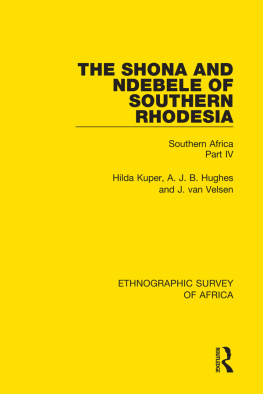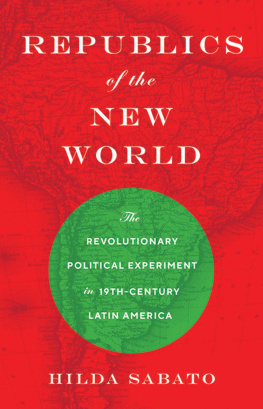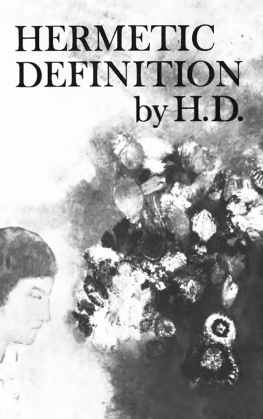AFRICAN ETHNOGRAPHIC STUDIES
OF THE 20TH CENTURY
Volume 40
AN AFRICAN ARISTOCRACY
AN AFRICAN ARISTOCRACY
Rank Among the Swazi
HILDA KUPER
First published in 1947 and reprinted in 1961 with a new preface by Oxford University Press for the International African Institute.
This edition first published in 2018
by Routledge
2 Park Square, Milton Park, Abingdon, Oxon OX14 4RN
and by Routledge
711 Third Avenue, New York, NY 10017
Routledge is an imprint of the Taylor & Francis Group, an informa business
1961 International African Institute
All rights reserved. No part of this book may be reprinted or reproduced or utilised in any form or by any electronic, mechanical, or other means, now known or hereafter invented, including photocopying and recording, or in any information storage or retrieval system, without permission in writing from the publishers.
Trademark notice: Product or corporate names may be trademarks or registered trademarks, and are used only for identification and explanation without intent to infringe.
British Library Cataloguing in Publication Data
A catalogue record for this book is available from the British Library
ISBN: 9780815387138 (Set)
ISBN: 9780429488139 (Set) (ebk)
ISBN: 9781138585508 (Volume 40) (hbk)
ISBN: 9780429504792 (Volume 40) (ebk)
Publishers Note
The publisher has gone to great lengths to ensure the quality of this reprint but points out that some imperfections in the original copies may be apparent.
Disclaimer
The publisher has made every effort to trace copyright holders and would welcome correspondence from those they have been unable to trace.
Due to modem production methods, it has not been possible to reproduce the fold-out maps within the book. Please visit www.routledge.com to view them.
AN AFRICAN ARISTOCRACY
RANK AMONG THE SWAZI
HILDA KUPER
Published for the
INTERNATIONAL AFRICAN INSTITUTE
by the
OXFORD UNIVERSITY PRESS
LONDON NEW YORK TORONTO
CONTENTS
Oxford University Press, Amen House, London E.C.4
GLASGOW NEW YORK TORONTO MELBOURNE WELLINGTON
BOMBAY CALCUTTA MADRAS KARACHI KUALA LUMPUR
CAPE TOWN IBADAN NAIROBI ACCRA
First published 1947
Reprinted (with New Preface) 1961
PRINTED IN GREAT BRITAIN
3344. SB 459
I N this new foreword to An African Aristocracy I would like once again to acknowledge the help I received in the collection and presentation of my original material. It is impossible to mention by name all the people who contributed to my writings since every anthropological work is a joint effort in which the anthropologist depends for data on the co-operation of the people studied and draws on the works of colleagues past and present for analysis and interpretation.
Looking back on my period of fieldwork, I realise how fortunate I was to have met with such courtesy and friendliness from all sections of the population. I occasionally revisit Swaziland, and each time the welcome I receive evokes a promise to return. It is difficult to express my indebtedness to the Swazi for accepting me as they did, but I wish in particular to put on record my lasting gratitude to Sobhuza II, his mother Lomawa, his Queens who adopted me, his sisters Sencabaphi and Nengwase, his ritual blood-brother Ngolotsheni Motsa, and my faithful assistant Mnyakaza Gwebu. My work also brought me into contact with White officials, missionaries, traders, miners and farmers, many of whom extended to me a warm hospitality and discussed with me their points of view. Members of the technical and administrative staff of the Territory constantly provided me with information and assistance, and I take this opportunity to offer special thanks to Mr. A. G. Marwick, one time Resident Commissioner, Mr. G. Elder, Principal Veterinary Officer, and the medical officers Drs. Jamieson, Keen and Mossbaum.
In the previous edition, I paid tribute to my teachers Dr. Winifred Hoernl and Professor Bronislaw Malinowski. Since then they have both died, but their ideas are alive in their students and the memory of my association with each remains for me a stimulus and inspiration. My colleagues, particularly Dr. Audrey I. Richards, Professor Max Gluckman, Professor Isaac Schapera and Professor Meyer Fortes, know how greatly I benefited from their criticism and encouragement. My fieldwork was financed by a Research Fellowship from the International African Institute, which also undertook publication of my work.
How much has happened since 1940, when I completed my intensive fieldwork in Swaziland! In a historic speech made in the Union of South Africa, in April 1960, the British Prime Minister, Harold Macmillan, spoke of the wind of change that was sweeping across the African continent. This wind has been gathering momentum over the past fifteen years. In Swaziland it has blown more gently than in many other parts of the Commonwealth, and though it would be interesting to speculate why, this obviously is not the place in which to do so. We can merely point out that the Swazi, who were never strongly militaristic and who were conquered by concessions rather than direct force of arms, were encouraged to retain much of their traditional culture under their own hereditary leaders who received recognition from the time of annexation by the British. Again, though there are a fairly large number of Whites who own land and property in Swaziland they are not directly represented in the government, and for the Swazi in Swaziland there is comparative freedom from the oppressive racial laws that have evoked violent opposition in the adjoining Union of South Africa.
At the same time, change has not altogether passed the Swazi by. The years after the Second World War were marked by a more positive approach than previously to the political rights, the economic development, and the educational and social needs of the people. The position of the traditional ruler and Councils was formally proclaimed, new personnel were appointed, and Native authorities were invested with more specific powers. New administrative machinery for liaison with the White administration was inaugurated and experiments made in local government. Recognition was given to selected Native Courts and a somewhat different legal hierarchy was established. A Swazi National Treasury was officially proclaimed replacing other sources of financial control, and affording new avenues for economic responsibility to men with western education. But compared with changes introduced in other parts of Africa, for example in Ghana, or even Basutoland, these changes are not fundamental.
On the other hand, more conspicuous than deliberate political changes, are the economic. Large amounts have been invested by privately owned companies and grants have been made available from the Colonial Development and Welfare Fund and the Colonial Development Corporation. As a result the pattern of land utilisation has changed considerably. Vast areas in the highveld have been planted with forests; in the lowveld three big irrigation schemes have been started and several new industries and townships have been opened. Everywhere there is evidence of improved agricultural techniques, new cash crops, and more careful siting of villages in relation to garden and pasturage. Additional land was acquired for the Swazi and, according to the most recent figures (1958), a little more than half the territory has become available for Swazi occupation. Opportunities for local employment have increased, while the numbers recruited for mine labour in the Union remain fairly constant.














